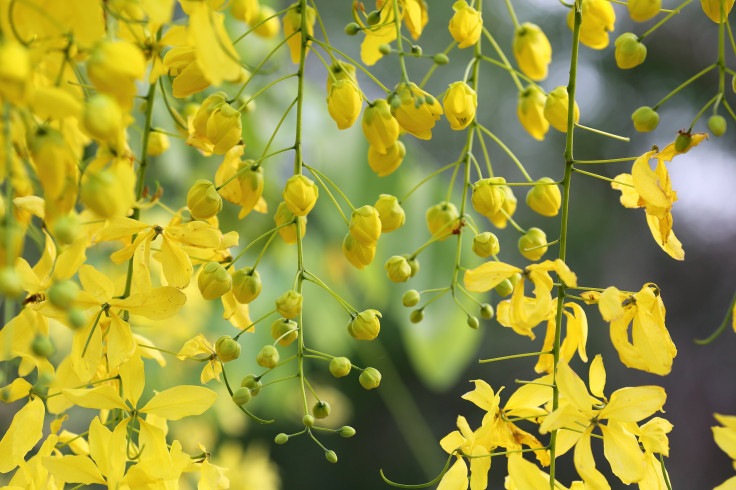Key To Quit Smoking May Be Found In Cytisine, Cheap Extract Found In Golden Rain Trees

A cheap plant extract that is mainly isolated to certain parts of Central and Eastern Europe might help you to stop smoking, according to a new study published in the New England Journal of Medicine.
Cytisine is similar to nicotine in that it can be quite toxic if consumed in large amounts. But this quality also lends the plant its appeal as a substitute for nicotine in smoking cessation. Perhaps more importantly, cytisine is incredibly cheap and even more effective than nicotine replacement patches and gums, the study found. Cytisine is an alkaloid derived from plants in the Leguminosae family, and is primarily found in the seeds of the golden rain tree, known as Cytisus Laburnum. It has often been used as a substitute for tobacco in Eastern Europe due to its ability to stimulate receptors in the brain that nicotine also affects.
Led by researchers in New Zealand, the study examined 1,310 smokers who were trying to quit. Half of the participants were given cytisine as tablets, which were to be taken in diminishing doses every day for 25 days, while the other half were given regular nicotine replacement therapy (NRT) — this typically involves nicotine patches, gums, or lozenges, for two months. The authors found that people taking cytisine were actually far more successful in stopping smoking than those on NRT; after six months, 143 of the 655 cytisine patients were still abstaining from smoking while only 100 in the NRT group of 655 had remained tobacco-free.
While this sounds promising, the authors also found that there were some side effects with the cytisine treatment, though they were quite mild. “Of those people in the cytisine group experiencing a side effect, the majority said they’d still recommend cytisine to someone who wanted to stop smoking,” lead author of the study Natalie Walker, of the University of Auckland’s National Institute for Health Innovation, told New Scientist. Side effects like nausea, vomiting, or sleep problems were minuscule in comparison to the detrimental chronic effects of long-term smoking, such as heart problems and an increased risk of lung cancer.
In addition to its help in quitting smoking, cytosine is much cheaper than other forms of NRT, costing only $20 to $35 for a 25-day treatment. NRT, on the other hand, costs between $100 to $700 for two months of treatment. “Smokers and governments in most low and middle-income countries can’t afford NRT, so cytisine will definitely have a major appeal to them,” Walker told New Scientist.
If cytisine is so great, then why haven’t we used it sooner? The fact is, not much research has been conducted on the alkaloid, and its use hasn't really expanded out of Eastern Europe. While it’s been used to treat tobacco dependence in Eastern European countries for 50 years, and has been marketed as “Tabex” by a Bulgarian company, research conducted in Bulgaria, Germany, Poland, and Russia in the 1960s and 70s did not comply with current standards for clinical trials. As a result, cytisine’s benefits weren't completely explored in Western European countries or North America.
The current study, however, changes that, and a new form of treatment may soon be available for people who cannot afford NRT. “I think this is the biggest news in smoking cessation treatment ever,” Robert West, a researcher at University College London who led a previous study on the benefits of cytisine, told New Scientist. “Here is a pill that can be produced for next to nothing, that can be bought by even the poorest smoker in India, and that can save literally millions of lives.”
Source: Walker N, Howe C, Glover M, McRobbie H, Barnes J, Nosa V. Cytisine versus Nicotine for Smoking Cessation. The New England Journal of Medicine. 2014.



























